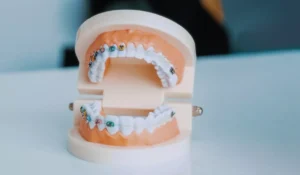The fact that a surprising proportion of men suffer from premature ejaculation(PE) at some point during their lives doesn’t make it any more comforting for those who do. Contrary to popular belief, somewhere in the region of 30% of all men will experience problems with premature ejaculation along the way, which for obvious reasons can be incredibly distressing and life affecting.
Though there’s no specific measurement as such, ejaculation that occurs less than 4 minutes into sex is considered premature ejaculation. Nevertheless, this rule of thumb differs significantly in accordance with country, culture, expert opinion and indeed the opinions of those affected. The simple fact of the matter is that if you suffer from a problem which you yourself believe is premature ejaculation, you have a valid case worth addressing. As such, it isn’t always necessary to have a professional diagnose a case of PE, but there’s much to be said for speaking to the professionals for advice on treatment options.
No Case Too Severe
The single most important thing to remember about premature ejaculation is that there is no such thing as a case too severe, too advanced or too long-standing to be treated. Just as is the case with most conditions, there is almost always a physical or psychological cause that is triggering PE. If you can isolate the cause, tackling the problem becomes so much easier.
For example, in many instances PE is directly connected with anxiety, stress and a variety of other psychological issues. In others, it may be a case of hyper-sensitivity that’s causing the individual in question to ejaculate prematurely. The problem being that PE typically develops into something of a self-perpetuating problem that’s difficult to break. The more you suffer from PE, the more you worry about suffering from PE and the worse the problem gets as a result.
Interestingly though, the moment the problem is brought out into the open, discussed and approached proactively, it’s surprising how quickly things can be turned around. By contrast, simply ignore the issue hoping it will go away on its own and it is usually only destined to get worse.
Effective Treatment Options
Well, it isn’t always 100% necessary, but it can nonetheless be highly reassuring to speak to a doctor about both the problem and the available options for treatment. While there are certainly plenty of OTC treatments and supplements that are labelled as helpful, the only clinically proven medication for premature ejaculation is Priligy dapoxetine. Medical research trials have shown an increase of 200%-300% in performance, when used as prescribed.
The very best results typically come as a result of combining prescribed medication with the kinds of behavioural techniques that are known to be most effective. So regardless of whether you go down the prescription medication path, the following techniques have been tried, tested and proven to help bring the majority of cases of PE under better control:
Masturbate first
First of all, one of the easiest and most effective ways of avoiding premature ejaculation is to simply masturbate a short time before any given sexual encounter. Doing so will make it considerably more difficult for the body to prepare itself for ejaculation the second time around, naturally prolonging and enhancing sexual performance.
Anaesthetic creams
In instances where sensitivity is the issue, there are various creams and gels that can be picked up these days that are designed to mildly and temporarily anesthetise the penis. This in turn reduces the sensation considerably during sex, though at the price of also reducing the sensation for your partner.
Additional condoms
Another option for reducing sensation without interfering with sensitivity for your partner is to wear thicker or multiple condoms. There are also condoms available these days that have been designed to reduce sensitivity for the wearer, but not for their partner.
The stop-start technique (or more advanced: Edging)
This tried and tested technique involves masturbating by hand, right up until the point when you are close to ejaculation, after which you stop. The process should be repeated three times, by allowing ejaculation to occur before the fourth time. The greater the number of times this exercise is performed, the more likely you are to begin knowing how and when to take control during sex.
If penetration is triggering PE in most instances, it’s worth focusing on foreplay and delaying penetration for as long as possible. This can also help remove some of the pressure, giving you sufficient opportunity to pleasure your partner before moving onto penetration.
Practice more
Last but not least, when PE occurs as a result of nothing more than nervousness, the key can often lie in little more than additional practice. The reason being that the more sex you have, the less nervous you become about it and therefore the less likely you are to experience premature ejaculation as a result of stress, anxiety and nerves.
Image by Pexels.com



